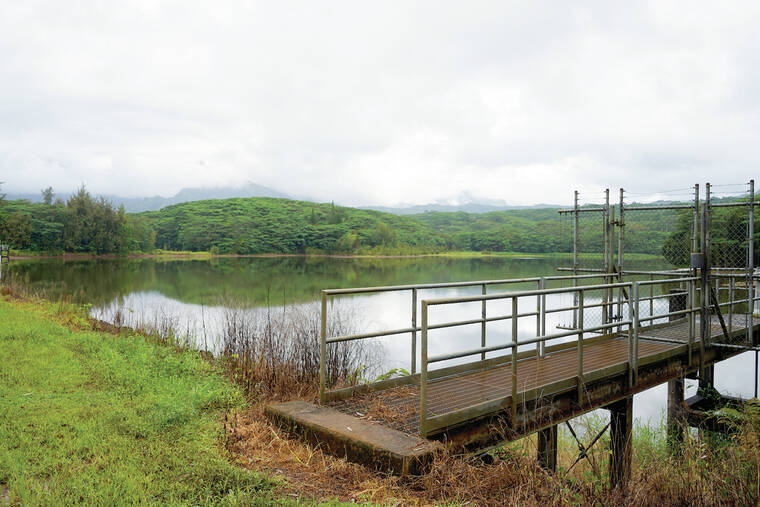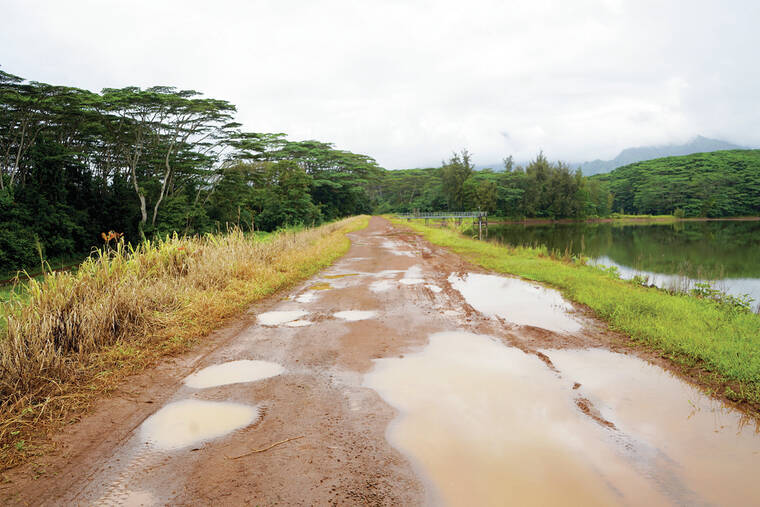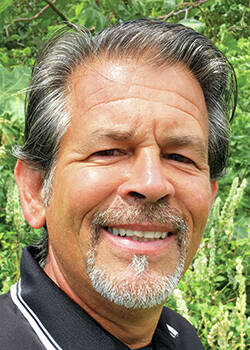LIHU‘E — Nearly two years after management of the East Kaua‘i Irrigation System passed to the state Department of Land and Natural Resources, no solution has been successfully implemented to prevent the system’s decommissioning.
The DLNR has warned that it lacks the necessary resources and expertise to maintain and operate the EKIS —which consists of some 51 miles of ditches and tunnels and provides water to more than 1,000 acres of land on Kaua‘i — since management responsibilities for the system fell to the department at the close of 2019.
The department said as much in a January 2020 press release. “Additionally, operation by DLNR would be inconsistent with the department’s mission of protection and management of natural, cultural, recreational and historical resources.”
The DLNR has further warned that it may eventually be forced to decommission the system, which includes Reservoir 21, Wailua
Reservoir and Upper Kapahi Reservoir, if a more-appropriate agency is not assigned to manage it.
“The ultimate goal is to transfer the system to an appropriate agency such as the Hawai‘i Department of Agriculture, so the system can be fully operated to support local agriculture,” said Dan Dennison, senior communications manager with DLNR. “If such a transfer is not successful, DLNR will seek to decommission the system, including breaching the reservoirs.”
Dennison said that the department’s resources have been further strained by vehicle and trash dumping, homeless squatters and “miscreants vandalizing the gates to use the reservoirs as an unauthorized recreational facility to ride dirt bikes.”
Consequences could be widespread if the system is shut down. Water from Reservoir 21, for example, is critical to the health of the ferns at Fern Grotto, and farmers who rely on the system could be devastated.
“The state should maintain this historical water system which provides water for our (state Agribusiness Development Corporation) farmers,” said Kaua’i County Councilmember Billy DeCosta. “We cannot lose our small farmers.”
DeCosta added that the COVID-19 pandemic has proven that farmers and ranchers are critical to Kaua‘i’s survival, and that the reservoirs helped ease flooding during the rainy season. Keeping the system operational is also critical to maintaining its viability.
“If the EKIS should be allowed to go dry, the reservoirs, ditches, tunnels and wooden flumes would crack, and be subject to extensive water losses,” DOA officials wrote in a 2004 assessment of the system’s needs. “Consequently, every effort should be made to maintain flows.”
Deactivation of the system, if a solution is not found, would be extensive, Dennison said.
“Any work to decommission the system is subject to the completion of planning, design and permitting requirements, as well as obtaining sufficient funding for the project,” Dennison said.
Multiple attempts to pass control of EKIS to the DOA have failed, most recently with the stalling of state Senate Bill 179. Progress on the passage of that bill ground to a halt after disagreements arose over amendments between the Senate and state House versions of the proposed legislation.
•••
Kaleb Lay, general assignment reporter, can be reached at 647-0329 or klay@thegardenisland.com.










Another nail in the coffin of agriculture on Kauai.
At a time when we need local produce more than ever, this water source somehow has to be sustained for our farmers. The supply chains are in disarray, mainland schools aren’t able to supply some schools with food for students. Now many decades later after agreeing we need local food production, we have this big area that may not be able to increase or even continue with farming.
These miscreants riding dirt bikes are somebodies local children….without helmets, riding through homesteads where KPD could easily stop them. Evidently, their parents either don’t know or don’t care.
Should have just given money to the guys already taking care of the thing in the first place.
Another sidestep to ongoing tyrrrany, not only Kauai, the entire globe! KPD substation, eminent domain, and whistleblower re-Z. Now, we get down to publishing about basics, Water?